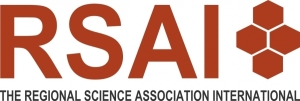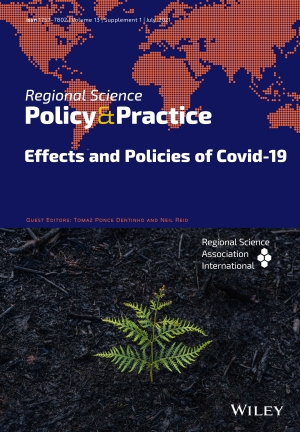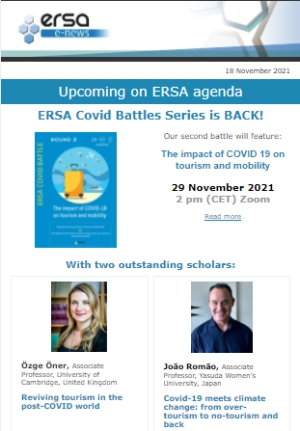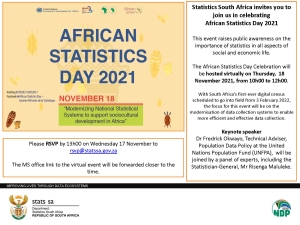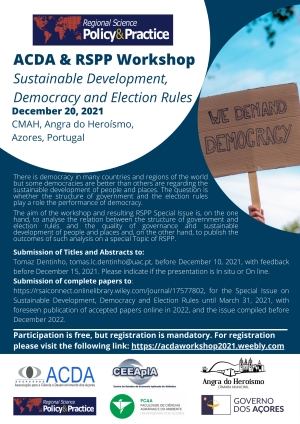RSAI Young Researchers Prize
Elisabete Martins
News on the RSAI Council and Papers in Regional Science
Dear RSAI members,
it gives me great pleasure to announce that at the latest RSAI Council meeting, held electronically on Nov. 11, 2021, two importand decisions were made.
First, the Council elected Prof. Hans Westlund (KTH Stockholm) as President Elect of the RSAI. Hans will become Vice President as of January 2022, and will work along Prof. Eduardo Haddad, current RSAI President, for the benefit of the Association. Good luck Hans!
The Council also elected a new Editor-in-Chief of Papers in Regional Science, our flagship Journal. After nine years of service, Prof. Roberta Capello (Politecnico di Milano) steps down, and Prof. Rosella Nicolini (Universidad Autonoma de Barcelona) begins a three years term as Editor-in-Chief of the Journal. To Roberta goes the Association’s gratitude. Over the past nine years, PiRS grew steadily in terms of quality of scientific output and impact as testified also by its Impact Factor. To Rosella, the Association’s best wishes to walk on these steps of excellence, and to further enhance the journal’s positioning in the field.
I also take the chance to welcome Prof. Tomaz Dentinho (University of the Acores) as Councillor-At-Large of the RSAI. Tomaz was elected with an online ballot, that also involved other excellent candidates. This is another example of the active role played by RSAI members in the life of the Association.
Thank you all in advance for your attention,
Kind regards,
Andrea Caragliu
Associate Professor of Regional and Urban Economics
Politecnico di Milano, ABC Department
RSAI Executive Director
Hans Westlund
Dr. Hans Westlund is born in 1957. Since 2007, he is Professor in Regional Planning, Royal Institute of Technology (KTH), Stockholm, Sweden, and Professor in Entrepreneurship, Jönköping International Business School, Jönköping, Sweden. He received a PhD in Economic History from the University of Umeå, in 1992.
His involvement with Regional Science activities and institutions is multifaceted and long-lasting. He acted as Chairman of the Local Organisation Committee for the European Regional Science Association's (ERSA) legendary 50th Anniversary congress, in Jönköping 2010. 2006-2014 he served as Member of the European Organising Committee of the European Regional Science Association. Since 2005, he has also been member of the board of directors of the Western Regional Science Association, for which he served as president 2013/14 and became lifetime Fellow 2018. He has served as Councillor-at-large of the Regional Science Association International, RSAI and he has been chairing ERSA’s Epainos Prize Committee and the WRSA’s Tiebout Prize Committee.
Beyond Regional Science, he is member of the Swedish Prime Minister’s National Innovation Council; co-editor of the Springer book series Advances in Spatial Science; member of the China Urban Science Research Association’s Resilience City Expert Committee; and member of the International Geographical Union’s Commission for Agricultural Geography and Land Engineering.
Among all his commissions, he has been a member of the Bank of Sweden Tercentenary Foundation´s Sector Committee for Research on the Civil Society; chairman and founder (together with Professor Kiyoshi Kobayashi, Kyoto University) of the International workshop “Social Capital and Development Trends in Japan´s and Sweden´s Countryside”; member of the Royal Swedish Academy of Agriculture and Forestry's Committee for Rural Development; and member of the Swedish research council Formas’ Scientific Council. Together with co-author Tigran Haas, he was given the Routledge Best Book Award 2018 for the book In the Post-Urban World, which also has been translated to Japanese.
His research interests include urban and regional development, social capital, innovation, entrepreneurship, and peripheral and rural regions.
Rosella Nicolini
Prof. Nicolini is Associate Professor of Applied Economics at the Universitat Autònoma de Barcelona, where she also act sas Coordinator of the PhD program in Applied Economics. Rosella received a PhD in Economics from the Université catholique de Louvain, 2000. Her PhD thesis entered the final draw for the annual prize of the EU’s Committee of Regions.. In 2007, she was recipient of the XI Premi Catalunya d'Economia. Her involvement in Regional Science activities and institutions has been continuous. Since 2018, she acts as Councilor-at-large of the RSAI. She i salso currently ERSA secretary, and previously served as Associate Editor for Papers in Regional Science. She is also Associate Editor of the RERU; and member of the Editorial Board of RSPP and Investigaciones Regionales. In the past, she was visiting professor at Boston University, at the University of South Wales (Sydney) and at Gretha (Bordeaux).
Her research focuses on the determinants of location (for both consumers and firms) from a regional perspective. She has authored and co-authored articles published in the major journals in the field (Regional Studies, Journal of Urban Economics, PIRS, Journal of Regional Science, International Regional Science Review, Spatial Economic Analysis).
Tomaz Dentinho
Prof. Tomás Ponce Dentinho has a Degree in economics from Universidade Católica Portuguesa (1975-1980); Three years of the Agronomy course and two years of the Course in Landscape Architecture at the Technical University of Lisbon (1976-1979); Master in economics, specializing in regional economics, from the Higher Institute of Economics and Management of the Technical University of Lisbon (1985-1987). PhD from the University of Newcastle upon Tyne (1990-1994). Postgraduate studies in Environmental Economics from the Harvard Institute for International Development (1999).
Tomaz has been Professor at the University of the Azores since 1987. Coordinator of the Master in Nature Management and Conservation (2000-2018). Coordinator of the PhD in Interdisciplinary Landscape Management (2008-2018). Representative of the Association of Higher Planning and Planning Schools (AESOP) at the University of the Azores.
He is a member of the Portuguese Association for Regional Development (APDR), the Regional Science Association International (RSAI) and the Portuguese Association for the Development of Operational Research (APDIO).
He was President of the Portuguese Association for Regional Development (2008-2015), Member of the Council of the Regional Science Association International and Executive Director of the Regional Science Association International (2011-2018) having brought the headquarters of this association to Portugal in July 2011. He acted as Editor-in-Chief for Regional Science Police and Practice since 2017.
His research focuses on regional economics, urbanism, operational research, environment and agriculture.
Call for applications - New RSAI committees (extended deadline)
Dear RSAI members,
I hope this email finds you all well.
I am writing you to let you know that, give the relevance of the bottom-up process of the activation of the three new RSAI committees, and to canvass enough good candidates to fill all positions, we decided to extend the deadline for proposing candidatures to Dec. 15. A public ballot among RSAI members will then be organized, with the possibility to vote open until Dec. 22, 2021. Winners of these elections will be shortly disclosed, and I'll be happy to get in touch with the new committee members, so that they can start working on their duties as of Jan. 1, 2022.
Thank you very much again for your support,
Kind regards,
Andrea Caragliu
Associate Professor of Regional and Urban Economics
Politecnico di Milano, ABC Department
RSAI Executive Director
The aims and rules for each of the three committees (Diversity and inclusion; Communication; and Honors) are presented in the attached power point. For each committee, we would like to ask your candidatures to be presented within Dec 15, 2021 at the latest by submitting a 2-page CV to the address This email address is being protected from spambots. You need JavaScript enabled to view it., specifying for which committee your candidature is meant.
The latest issue of Papers in Regional Science are available! Volume 100, Issue 6, December 2021
|
Papers in Regional Science Pages: 1335-1657 December 2021 |
ISSUE INFORMATION
![]() Free Access
Free Access
Pages: 1335-1336 | First Published:01 December 2021
FULL ARTICLES
![]() Open Access
Open Access
Fernando Bruna, Juan Fernández-Sastre
Pages: 1337-1354 | First Published:06 August 2021
Skill relatedness, structural change and heterogeneous regions: evidence from a developing country
Jefferson Ricardo Bretas Galetti, Milene Simone Tessarin, Paulo Cesar Morceiro
Pages: 1355-1376 | First Published:06 July 2021
When, where, and for what industries does broadband foster establishment births?
Chloé Duvivier, Emma Cazou, Stéphanie Truchet-Aznar, Cédric Brunelle, Jean Dubé
Pages: 1377-1401 | First Published:24 June 2021
![]() Open Access
Open Access
Does urbanization matter in the expenditure‐happiness nexus?
Cristina Bernini, Silvia Emili, Federica Galli
Pages: 1403-1428 | First Published:04 November 2021
![]() Open Access
Open Access
Are old regions less attractive? Interregional labour migration in a context of population ageing
Paula Prenzel
Pages: 1429-1447 | First Published:25 June 2021
Kuan-Ming Huang, Xiaoli Etienne
Pages: 1449-1479 | First Published:01 July 2021
![]() Open Access
Open Access
Diana Gutiérrez-Posada, María Plotnikova, Fernando Rubiera-Morollón
Pages: 1481-1500 | First Published:05 August 2021
![]() Open Access
Open Access
Collected worker experiences, knowledge management practices and service innovation in urban Norway
Sverre J. Herstad, Marte C. W. Solheim, Marit Engen
Pages: 1501-1525 | First Published:07 August 2021
On urban sprawl: Closed city, open city or does it even matter?
Jeffrey A. DiBartolomeo, Geoffrey K. Turnbull
Pages: 1527-1543 | First Published:11 August 2021
![]() Open Access
Open Access
Reducing automation risk through career mobility: Where and for whom?
László Czaller, Rikard H. Eriksson, Balázs Lengyel
Pages: 1545-1569 | First Published:19 August 2021
No time for crime? The effect of compulsory engagement on youth crime
Nikhil Jha
Pages: 1571-1597 | First Published:09 June 2021
![]() Open Access
Open Access
Juan Manuel Valderas-Jaramillo, José Manuel Rueda-Cantuche
Pages: 1599-1624 | First Published:30 June 2021
Modelling heterogeneous preferences for nature‐based tourism trips
David Boto-García, Antonio Alvarez, José Baños
Pages: 1625-1653 | First Published:06 August 2021
REFEREES
Pages: 1655-1657 | First Published:01 December 2021
First Global Regional Development conference, December 3-5, 2021, Shenzhen Greater Bay Area, China
Dear TRSA members & friends:
Tomorrow will be the start of the First Global Regional Development conference on: “SUSTAINABLE REGIONAL DEVELOPMENT, DIGITAL CITY RESILIENCE AND SUCCESSFUL LOCAL LEADERSHIP”, to be held in Shenzhen Greater Bay Area, China, from December 3-5, 2021.
You are cordially invited to participate online in this prestigious and international event, which is co-organized with The Regional Science Academy and Tsinghua University, Beijing. The hybrid form (rather than an online meeting) has been chosen due to the current corona regulations in many countries,
with a large group of Chinese scholars meeting physically in Shenzhen and a scattered group of overseas participants meeting in their home office.
We are pleased to inform you that Professor Paul Romer, Nobel laureate in economics, will give a keynote lecture and join the interesting Round Table discussion on Friday, December 3, 2021 at 22.00 (Beijing time), while also Sameh Naguib Wahba, Global Director for Urban and Territorial Development, Disaster Risk Management and Resilience of the World Bank, and many other well-known speakers, will join.
We have great pleasure in sending you herewith the final programme. It promises to become an exciting event with a great audience. Despite the corona limitations, the conference promises to become a scientific highlight which will set the tone for innovative thinking on new regional and urban development concepts and practices. We all look forward to meeting you tomorrow and to continue our cooperation in the coming years.
We will be pleased and honoured to have you with us in this First Global Conference.
Cordially yours,
Karima Kourtit, also on behalf of Peter Nijkamp and Chinese hosts.
ERSA Monthly E-news - November 2021
|
Call for applications - New RSAI committees
Dear members of the RSAI,
I hope this email finds you all well.
I am writing you because the RSAI Council met on Nov 11, 2021, and decided to activate three new committees meant to further enhance the diversity of the association, its capability to attract young scholars, and to reach out a broader community.
Following up to the good experience of the election of the RSAI Dissertation award committee, we would like to invite applications from all of you to participate in the activities of these committees. The aims and rules for each of the three committees (Diversity and inclusion; Communication; and Honors) are presented in the attached power point. For each committee, we would like to ask your candidatures to be presented within Nov. 30, 2021 at the latest by submitting a 2-page CV to the address This email address is being protected from spambots. You need JavaScript enabled to view it., specifying for which committee your candidature is meant. A public ballot among RSAI members will then be organized, with the possibility to vote open until Dec. 15, 2021. Winners of these elections will be shortly disclosed and I'll be happy to get in touch with the new committee members, so that they can start working on their duties as of Jan. 1, 2022.
As you may see from the power point, a member from each supranational section (LARSA; NARSC; ERSA; PRSCO) should be elected, and maximum attention to diversity in the composition of these committees should ideally be sought.
We thank you all in advance for your participation and service,
Kind regards,
The latest issue of Regional Science Policy & Practice are available! Volume 13, Issue S1, November 2021
|
Regional Science Policy & Practice Pages: 1-216 November 2021 Issue Edited by: Tomaz Ponce Dentinho, Neil Reid |
ISSUE INFORMATION
![]() Free Access
Free Access
Pages: 1 | First Published:17 November 2021
INTRODUCTION
![]() Free Access
Free Access
Effects and policies of COVID‐19
Tomaz Ponce Dentinho, Neil Reid
Pages: 2-3 | First Published:17 November 2021
RESEARCH NOTE
![]() Free Access
Free Access
Kingsley E. Haynes, Rajendra Kulkarni
Pages: 4-17 | First Published:24 March 2021
ORIGINAL ARTICLES
![]() Free Access
Free Access
Welfare costs of travel reductions within the United States due to COVID‐19
Hakan Yilmazkuday
Pages: 18-31 | First Published:29 May 2021
![]() Free Access
Free Access
The impact of COVID‐19 on global value chains: Disruption in nonessential goods production
Joao-Pedro Ferreira, Pedro Ramos, Eduardo Barata, Christa Court, Luís Cruz
Pages: 32-54 | First Published:05 April 2021
![]() Free Access
Free Access
Impact of Covid‐19 on the convergence of GDP per capita in OECD countries
Vítor João Pereira Domingues Martinho
Pages: 55-72 | First Published:12 May 2021
![]() Free Access
Free Access
Unraveling spatial patterns of COVID‐19 in Italy: Global forces and local economic drivers
Eleonora Cutrini, Luca Salvati
Pages: 73-108 | First Published:21 August 2021
![]() Open Access
Open Access
On the link between temperature and regional COVID‐19 severity: Evidence from Italy
Vicente Rios, Lisa Gianmoena
Pages: 109-137 | First Published:06 September 2021
![]() Free Access
Free Access
Ilyes Boumahdi, Nouzha Zaoujal, Abdellali Fadlallah
Pages: 138-157 | First Published:24 February 2021
![]() Free Access
Free Access
Eduardo Rodrigues Sanguinet, Augusto Mussi Alvim, Miguel Atienza, Adelar Fochezatto
Pages: 158-186 | First Published:07 June 2021
![]() Free Access
Free Access
Oscar Espinosa, Jhonathan Rodríguez, Adriana Robayo, Lelio Arias, Sandra Moreno, Mariana Ospina, David Insuasti, Juan Oviedo
Pages: 187-197 | First Published:02 September 2021
Cultural and economic discrimination by the Great Leveller
Annie Tubadji, Don J. Webber, Frédéric Boy
Pages: 198-216 | First Published:17 July 2021
ERSA Covid Battle Series is back!
|
INVITATION TO VIRTUAL EVENT: AFRICAN STATISTICS DAY-18November 2021- LINK ACCESS & PROGRAM
Statistics South Africa invites you to join us in celebrating
African Statistics Day 2021
This event raises public awareness on the importance of statistics in all aspects of social and economic life
The event will be hosted virtually on Thursday, 18 November 2021 from 10h00 - 12h00
Venue: Microsoft Teams virtual event
PLEASE CLICK ON BELOW MENTIONED LINK TO GAIN ACCESS TO EVENT
With South Africa’s first ever digital census scheduled to go into field from 3 February 2022,
the focus for this event will be on the modernization of data collection systems to enable
more efficient and effective data collection.
Theme: "Modernizing National Statistical Systems to support sociocultural development in Africa"
Keynote speaker:
Dr Fredrick Okwayo - Technical Advisor , Population Data Policy at
United Nations Population Fund (UNFPA)
Please RSVP by 13h00 on Wednesday, 17 November 2021
to This email address is being protected from spambots. You need JavaScript enabled to view it.
ACDA & RSPP Workshop on Sustainable Development, Democracy and Election Rules, December 20, 2021
The aim of the workshop and resulting RSPP Special Issue is, on the one hand, to analyse the relation between the structure of government and election rules and the quality of governance and sustainable development of people and places and , on the other hand, to publish the outcomes of such analysis on a special Topic of RSPP.
About Us
The Regional Science Association International (RSAI), founded in 1954, is an international community of scholars interested in the regional impacts of national or global processes of economic and social change.

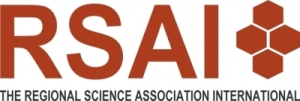
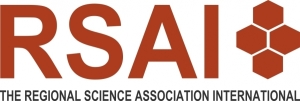
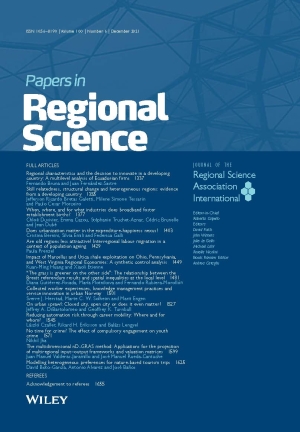


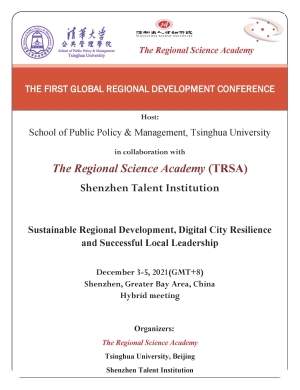
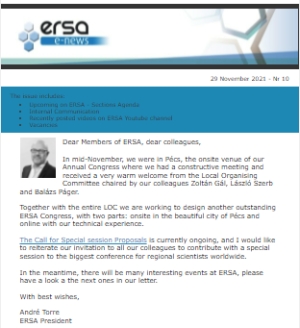

 Dear Members of ERSA, dear colleagues,
Dear Members of ERSA, dear colleagues,
















